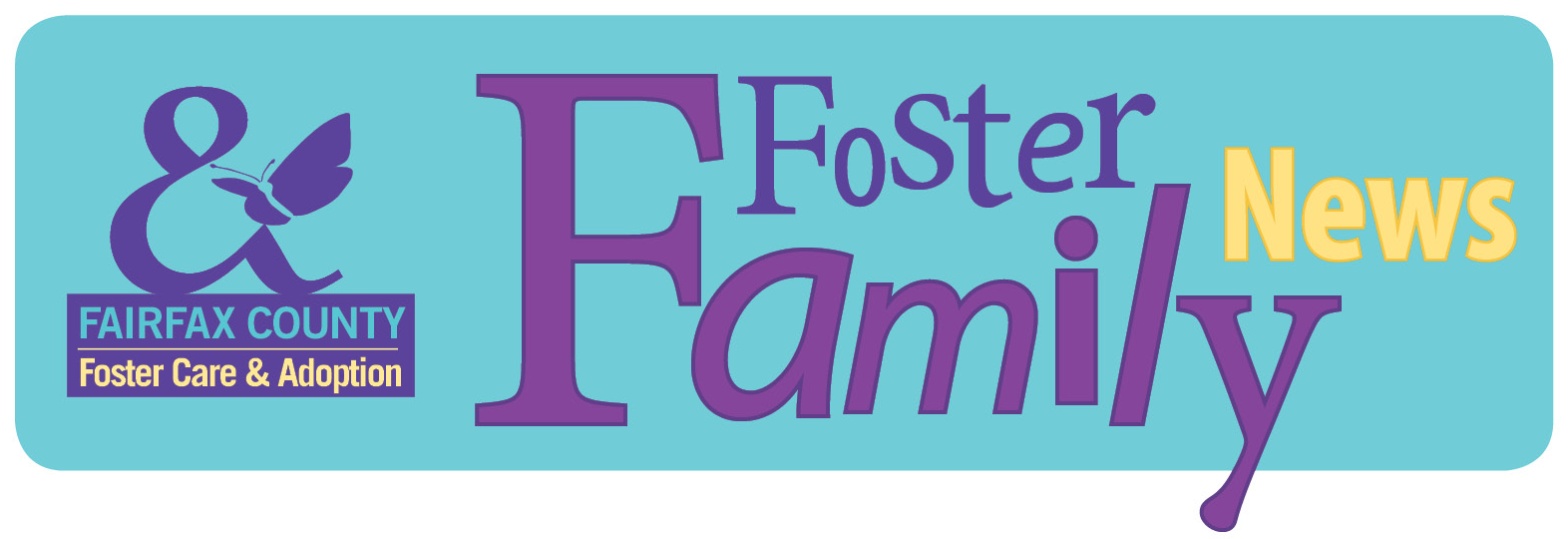
Welcome to the 2019 April issue of Foster Family News, a monthly newsletter for current and potential Fairfax County foster parents.
| Table of Contents | |
|---|---|
|
|
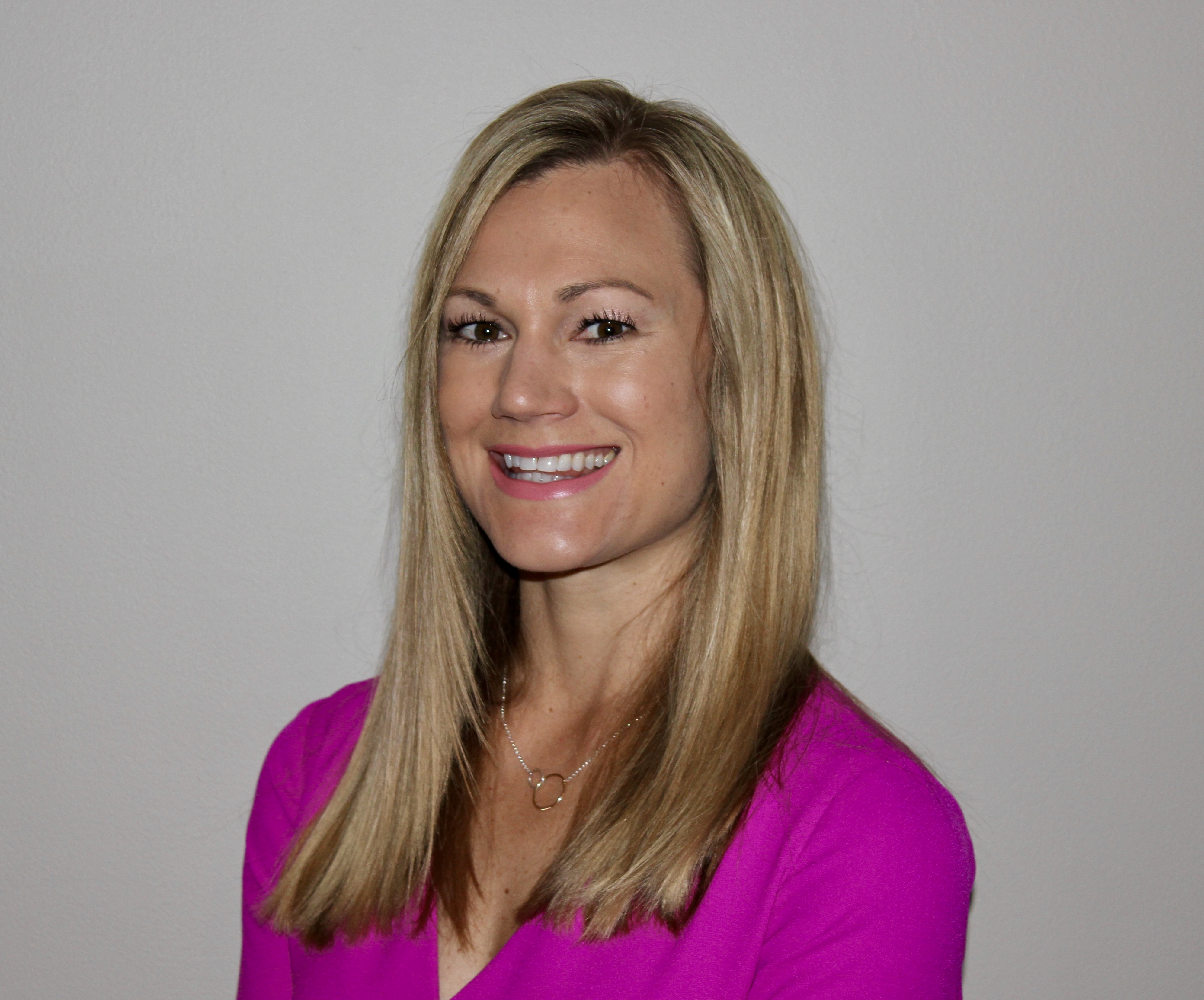
Lessons in Fostering, from you, the Experts
I recently read the nationwide turnover rate among foster parents is between 30 percent and 50 percent.
In a survey by the Foster Care Institute, foster parents cited a number of different factors influencing their decisions to quit. Some of the top reasons included: feelings of loss and grief; lack of training; lack of information about the children placed in their home; not feeling included in the decision making of the child placed in their home; high turnover of caseworkers; lack of respite care or time off. Anecdotally, I’ve heard from parents in our own county who have quit because they’ve waited so long to receive placements.
I personally have felt all of these things at one time or another. But whatever the reasons, it’s clear that foster-parent retention is a pressing issue. So what motivates you to stick with it? What’s your biggest challenge? What advice would you give to newbies? I took my own informal poll of you, the experts, to find out. Here is a sampling of the insight you reported…
The best thing about being a foster parent…
Not surprisingly, every single person said it was all about the kids. Specific responses included: making difference in a child’s life; watching them take little and big steps forward in their confidence, self-worth, abilities; watching them grow, heal and overcome obstacles – especially the ones who may be considered the most ‘difficult’ at the beginning; and helping them learn about life and love and a little normalcy (and sometime this extends to the entire bio family).
The hardest thing about being a foster parent…
Navigating the system (especially the courts and attorneys) and dealing with the emotional roller coaster through the unknowns were common themes. Some mentioned the heartbreak of watching families get it together and then not, and then again, and then not; and seeing bio parents get chance after chance and continue to let their kids down.
What piece of advice would you give to someone considering becoming a foster parent?
Several of you spoke to the importance of keeping strong lines of communication open with the entire team at all times. Other words of wisdom included:
- Make every effort to bridge the gap; yes, it really can be possible, and when done successfully, it’s one of the most rewarding parts of the fostering journey.
- Don’t worry about making mistakes because you will; don’t be too hard on yourself.
- Don’t be afraid to say no; you are not a fit for every child, and that’s OK.
- Advocate for your child at every level. Be sure to speak up and don’t be afraid to bring issues up the chain when needed!
- Be patient.
If I had to sum up your responses in a few phrases, here’s what it would be. Clearly, it’s all about the children! The emotional ups-and-downs are real, and they’re hard. To be successful requires constant communication, advocacy and patience.
Keep reminding yourself of the reason you began this journey in the first place–and use it as your motivation and source of strength to continue, even when times get tough, because we all know, they will.
Keep up the great work!
All the best,
Bethany Shively
President
Fairfax County Foster Care and Adoption Association (FCFCAA)
 How can we better serve you? Healthy Minds Fairfax seeks input from young people between the ages of 12-24 as we work to create services supporting 16- to 24-year-olds in transitioning successfully to adulthood.
How can we better serve you? Healthy Minds Fairfax seeks input from young people between the ages of 12-24 as we work to create services supporting 16- to 24-year-olds in transitioning successfully to adulthood.
You can help us determine the kinds of supports to offer in our community by taking this 16-question survey. Your answers will remain anonymous.
 April
April
EYE & E3 Teen Summer Career Training Programs
Applications are now available for youth ages 16-20 to apply for participation in the Northern Virginia Educating Youth through Employment (EYE) Program or the Enrich, Educate, and Empower (E3) Summer Training Program. Youth can apply for one of the paid CYF Summer Employment Programs (EYE or E3) at an information night on Wed., Apr. 10 in the Pennino Building. Applications and referrals for both programs are due Fri., Apr. 26. For more information, contact Charisma Canty.
Wed., April 10, 2019
6-7:30 p.m.
Pennino Building
12011 Government Center Parkway
Fairfax, VA 22035
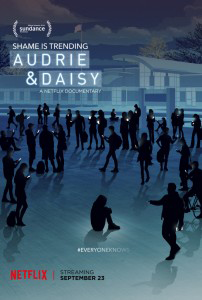 Audrie & Daisy Documentary & Discussion
Audrie & Daisy Documentary & Discussion
Join Fairfax County Department of Family Services, Domestic and Sexual Violence Services, and Neighborhood and Community Services for a screening of Audrie & Daisy the real-life drama that examines the ripple effects on families, friends, schools and communities when two underage young women find sexual assault crimes against them have been caught on camera. The screening, for Fairfax County youth and supportive adults, will be followed by a discussion that takes look at coming of age in this new world of social media bullying. Permission slips are required to attend the screening. Because the content of this film may be difficult to watch, there will be a safe space and counselors on hand. Learn more information or to get tickets and permission slips.
Thurs., April 18, 2019
2-5 p.m.
James Lee Community Center Auditorium
2855 Annandale Road
Falls Church, VA 22042
May
 Children’s Mental Health Awareness Day Open House and Vendor Fair
Children’s Mental Health Awareness Day Open House and Vendor Fair
Join the Community Services Board and Healthy Minds Fairfax to meet those in our community who are working to improve and strengthen emotional wellness in young people. Hear from youth who have thrived with the aid of clinical and therapeutic supports, listen to a young author who wrote a book about her experiences with stress and gain tools you need to know to help youth in our community. Find out more information about this free event, which is open to all members of the community; registration is not required.
Thurs., May 9, 2019
3:30-6:30 p.m.
Merrifield Center
8221 Willow Oaks Corporate Drive
Fairfax, VA 22031
Each newsletter will include this section to help answer questions, spotlight the people who support foster families, highlight the donors and sponsors who generously give to foster care programs and activities and friendly reminders for foster families to sign-up for trainings.
 Question: When do we engage relatives in the foster care process?
Question: When do we engage relatives in the foster care process?
Answer: Searching for and engaging relatives is an ongoing process throughout the child’s involvement with the child welfare system. It should begin as soon as the child is at risk of being placed outside of the home and continue with a sense of urgency until the child has achieved permanency.
Even when placed in safe and loving foster homes, children often want a connection to their biological family. Relatives and other individuals can provide important connections and support for the child at risk of or in foster care. They can help the child in preventing foster care, during the foster care experience, in transitioning to permanency, and throughout adulthood. Strong connections with family members provide the child with stability, long-term safety nets, and the necessary foundations for success in adulthood.
Within 30 calendar days (5 days when feasible) after removing a child from the custody of the parent(s) (Social Security Act, Title IV, § 471 (a) (29) [42 USC 671]), the Department shall notify in writing all grandparents and other adult relatives, both maternal and paternal. The purpose of the written notice is to explain to the relative options they have to participate in the care and placement of the child, in an effort to establish permanency for the child.
The goal of reunifying the child with birth parents or prior custodians is, in most cases, the best plan for a child. However, ongoing engagement of relatives allows for the concurrent goal of adoption by a relative or placement with a relative. Engaging relatives can reduce the number of children aging out of foster care without a permanent family and increases the number of children leaving foster care to a permanent, safe, and loving home.
The process of engaging relatives should be guided by the desires and needs of the child, consistent with the child’s developmental level. The child should be involved as soon as possible in the process, taking into account the child’s circumstances and best interests.
As family members are identified, opportunities for reconnecting and re-engaging them in the child’s life should be explored.
When family members indicate interest in connecting with the child, the Department will engage these individuals to gather information, build relationships, and explore relative placement options for the child.
Relationships with family members and other adults should be reconsidered throughout the child’s involvement with the child welfare system. The child’s needs and desires, and the individual’s circumstances may change over time. Someone who initially was not able to assist the child may be a valuable resource at another time.
(Information adapted from Virginia DSS Foster Care Policy Manual)
Check out other frequently asked questions and answers from past issues.
The statistic for the race of children in foster care is based on the three largest racial and ethnic groups: African American, Latino and White.
United States: African American 28%; Latino 21%; White 42%
Virginia: African American 34%; Latino 10%; White 48%
Fairfax County: African American 30%; Latino 30%; White 19%
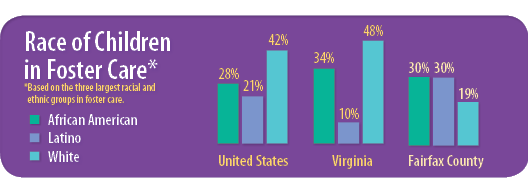
 5 Things to Know About Mary L. Adamchak, Supervisor, Post Adoption Services
5 Things to Know About Mary L. Adamchak, Supervisor, Post Adoption Services
1. I was a stay-at-home mom for several years and decided if I wanted to get back into the workforce I should pursue a graduate degree. I have always been an advocate for social justice and felt an MSW might be the way to go. My concentration was in policy and planning and, because of that, I managed to get an internship with Susan Alexander, then-CPS program manager. Through my internship, I became interested in child welfare and knew that is where I wanted to be. I started working on the CPS Hotline in 1999 before coming to post adoption services in 2003--so I went from the beginning of the child welfare spectrum to the very end of the spectrum.
2. I was originally attracted to the position because of the emphasis on policy, but I soon became a proponent for post adoption services. The majority of the children adopted from foster care meet the criteria for special needs, which qualifies them for adoption assistance. Some of these children have significant emotional or mental health issues, mostly related to the trauma they endured prior to being adopted. These needs do not go away when a child is adopted, so families need supportive services to continue. Under adoption assistance, children and youth can qualify for services until they are 18 or 21, should their needs continue. Part of my job is to advocate for families with the state to ensure they get the supportive services they need. Services can include respite, therapy, tutoring and help with medical care. I once successfully advocated for a hot tub for a blind youth with autism who loved being in the water! I am quite passionate about supporting our adoptive families and have attended meetings at the state to advocate for their needs.
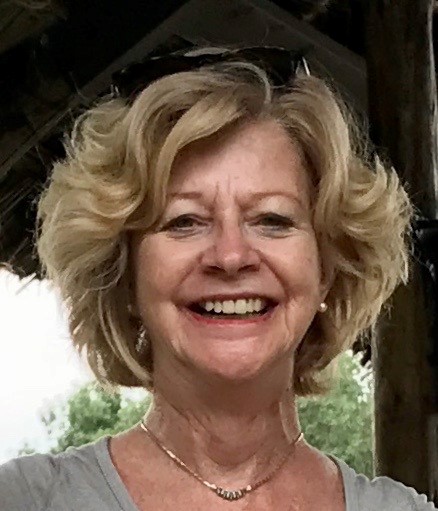 3. The biggest challenge in this work: We currently have 415 cases divided between four social workers. We get audited regularly and need to ensure all our cases have documentation to support eligibility for adoption assistance. For some of our older cases, we have had to dig through old documents to retrieve essential documentation. Some of our families have significant difficulties coping with their adopted children, and I worry that maybe the placement was not the best for a child or family. But I tell myself the vast majority of our adoption placements are successful. We have only had two dissolutions in the past 20 years.
3. The biggest challenge in this work: We currently have 415 cases divided between four social workers. We get audited regularly and need to ensure all our cases have documentation to support eligibility for adoption assistance. For some of our older cases, we have had to dig through old documents to retrieve essential documentation. Some of our families have significant difficulties coping with their adopted children, and I worry that maybe the placement was not the best for a child or family. But I tell myself the vast majority of our adoption placements are successful. We have only had two dissolutions in the past 20 years.
4. My job is rewarding. I have had the privilege of working with remarkable people. I have been so humbled by the generosity of our adoptive parents, many of whom go to extraordinary lengths to help children who have significant needs make their lives better. It is so rewarding to hear that children who once struggled are now thriving in their homes and communities. I also work with remarkable people who go above and beyond to ensure children find a permanent home.
5. When I’m away from the job, I love to cook and try out new recipes. My son once asked me if we could have hamburgers for dinner just like other families! Trust me, he had his fair share of hamburgers! I also am an avid reader and belong to a book club, which meets once a month, and we actually do discuss the book. I love walking and plan to get a few more miles in a week when I retire. I also love to work in my garden and travel, particularly adventurous trips. I have been to the Galapagos Islands, the Arctic Circle and, best of all, on an African safari! I became a grandparent last September and love spending time with my little grandson. I am retiring in May and am looking forward to spending more time doing the things I enjoy most.
Our partners and donors are the true power behind communities of care for Fairfax County Foster Care and Adoption. With them we can provide amazing support services, community events and after care resources.
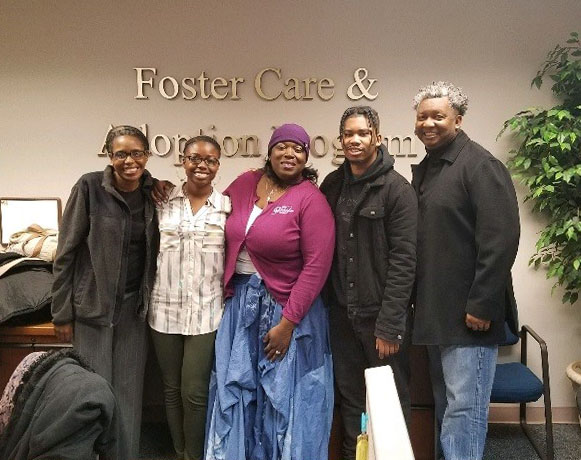 This issue highlights and thanks the OPHELIA Foundation (Opportunities to Provide Hope, Empower Lives & Influence Advancement), an advocacy organization with a mission to help others, particularly those who might otherwise have few or no opportunities. The foundation joined our roster of donors last holiday season.
This issue highlights and thanks the OPHELIA Foundation (Opportunities to Provide Hope, Empower Lives & Influence Advancement), an advocacy organization with a mission to help others, particularly those who might otherwise have few or no opportunities. The foundation joined our roster of donors last holiday season.
Contact Information
855-9-OPHELIA
https://opheliafoundation.org
Check out highlights of other donors and sponsors from past issues.
 The following trainings and conferences are for Fairfax County foster parents only.
The following trainings and conferences are for Fairfax County foster parents only.
Inservice (For certified Fairfax County foster parents. Registration required.)
Learn more and save the dates for upcoming trainings and conferences.
 What do you want to see in Foster Family News?
What do you want to see in Foster Family News?
Submit your suggestions to Kendra Lee.
Check out past issues of Foster Family News.

